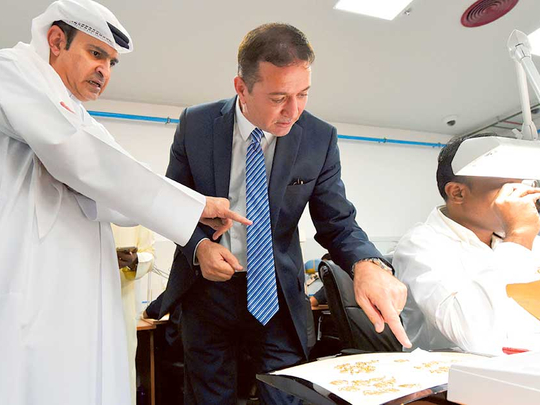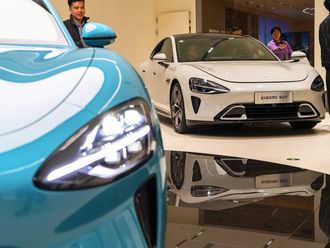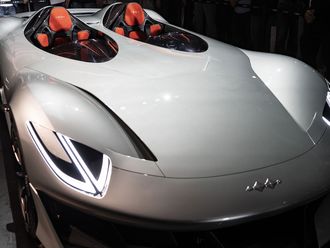
Dubai: The UAE-based jeweller Damas has commissioned a full-scale production facility in Dubai, with an initial monthly capacity utilisation of 270 kilograms and as many as 17,000 handmade gold and diamond jewellery pieces. The plant could clear Dh500 million worth of finished jewellery pieces each year and will be used exclusively for Damas’s own retail requirements, according to a top official.
Phase One investments on the machinery have come to Dh15 million and the raw materials would take up another Dh200 million. (Raw materials in this case would include scrap bullion and jewellery, while pure bullion comes from the banks.)
While the UAE already hosts privately-owned gold refineries, fully integrated jewellery production on this scale is still in the early phase of its evolution. For retailers like Damas, these investments now would ensure they have the committed production capacities to support all future network expansion. “The plan is to reach a point that by 2020 every piece Damas sells is sourced from this plant,” said Anan Fakhreddin, CEO of Damas.
Currently, the retailer is on a major expansion drive in Saudi Arabia. It has reached a point where it is adding a new store every other week or so. But the UAE still tops as far as revenue generation is concerned — “It will take some more time for our Saudi sales to reach that stage,” the CEO added. “Currently, we have a network of 230-240 stand-alone Damas outlets plus the franchises we manage.”
Until now, Damas’s jewellery requirements have been met through joint ventures with overseas production houses and through sourcing arrangements with independent suppliers. Some of the associations with overseas suppliers have been terminated in recent years as it moved to controlling the bulk of its production and supply in-house.
“Each one of those associations is different ... where we feel the product specialisation is no longer there, we decided to exit,” the CEO said. “We still retain a joint venture with one Hong Kong firm and that remains very profitable.”
On whether opting for an own production wasn’t costly as opposed to sourcing from others, Fakhreddin said: “The risks associated with the jewellery business keeps on increasing. The safest way — even though it might be a lot more difficult than [third-party] sourcing — is to have total quality control and that comes only with having own facilities,” the CEO said. “We want to have that A-Z control.”
Damas’s existing production facility, also in Dubai, will now only handle design-related processes, specialised orders and even repairs. On whether the new plant would mean Damas only focuses on the high-end, Fakhreddin said that was not going to be the case. “An entire floor has been given over to convert gold wires into chains and bangles, and that’s very much mass market.”
Other leading jewellery chains have also opted for design and production in the UAE, including Malabar Gold & Diamonds and Kalyan Jewellers. There are also stand-alone refineries operated by the likes of the Kaloti Group.
Incidentally, gold jewellery consumption had slipped over the first two quarters, based on estimates from World Gold Council. The second quarter was particularly rough, with international gold prices firming up post the Brexit vote and on what the US Federal Reserve might do next with interest rates. Since then gold prices have been on a bit of an up-and-down cycle.
Fakhreddin said: “That jewellery sales are down locally happens each time there are expectations that gold prices will drop further and consumers prefer caution. It has happened enough times in the past, usually every five to seven years. Only difference is this time it’s been influenced by a lot of factors.”












